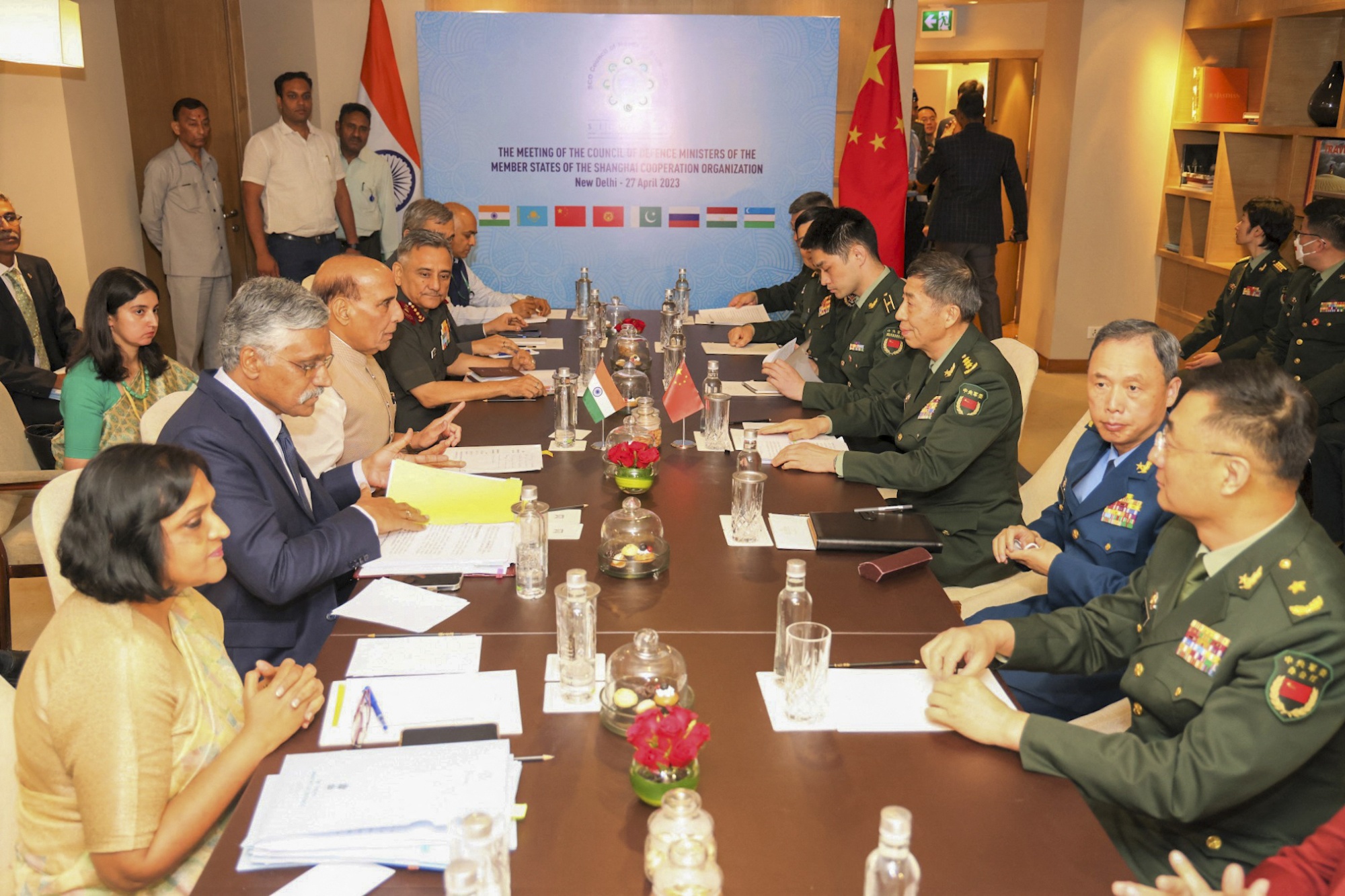The Indian Defense Minister called China out for crossing the border and said that good ties between the two countries depend on the borders being calm and peaceful.
Last week, at a meeting of the Defense Ministers of the Shanghai Cooperation Organization (SCO), India took a very tough stance toward China, its neighbor and the founder of the SCO.
In recent years, there haven’t been a lot of good feelings between two Asian neighbors because China has crossed into Indian land.
India’s Hard Stand
China’s defense minister, Li Shangfu, went to India for the first time since 2020, when 20 Indian soldiers and 4 Chinese soldiers died in clashes along the Himalayan border in Ladakh and the two countries came the closest to going to war in almost 70 years. Li Shangfu did not expect to be treated so badly by the Indians.
During his meeting with Li Shangfu, Indian Defense Minister Rajnath Singh accused China of border attacks that have “eroded the entire basis” of their relationship, as talks over the line of actual control (LAC) remain stuck.
China has kept crossing the border, even though India has been very angry about it. In December of last year, more than 20 Indian soldiers were hurt in a fight with Chinese troops in the eastern state of Arunachal Pradesh. India said that the Chinese troops were trying to “cross the border,” which meant that they were crossing into Indian territory.
In March, China said it was going to “rename” 11 places in Arunachal Pradesh, which it says is part of Tibet. In the same week, the Indian home minister went to the border area to support India’s territorial claim. Beijing responded by saying that the visit was a violation of China’s territorial authority.
Border Issue
Even though there has been disengagement in some areas recently, Indian army officials and defense experts say that China still controls about 1,500 sq km in Ladakh, which the PLA took over in 2020. Demchok and Depsang are two of the most disputed places in Ladakh. They used to be patrolled by Indian troops, but now PLA forces live there. Both places are still important for India from a strategic point of view, but despite many rounds of talks, nothing has changed, and China doesn’t seem to want to solve the problem either.
People who live near the border in Ladakh say that during the disengagement talks, New Delhi gave Beijing land by agreeing to create buffer zones where neither side can patrol. These buffer zones would be in land that India had previously claimed, such as the disputed Pangong Tso and Chushul areas. So, India is the real loser in this case.
In truth, this happened because India couldn’t see how China planned to take over the area. China has been building new highways, rail lines, bridges, airstrips, military bases, modern housing, and 5G towers in the disputed area, while India has been left behind. In the past, India has avoided developing areas close to the Chinese border to avoid provoking China, so many of its border areas are still poor.
India has recently put twice as much effort into building facilities near its border with China. This is to make up for mistakes it made in the past. In January 2023, India’s defense minister started 27 projects to improve infrastructure along the border. India is also speeding up the building of 37,500 miles of roads, 350 miles of bridges, 19 airfields, and a few tunnels in border areas or close by.
The ambitious 8-mile tunnel being built in the Himalayas at an altitude of about 3,000 meters to join Ladakh all year round is a good example of how big and fast this Indian infrastructure push is. India works hard to finish the $1.4 billion Zojila tunnel as soon as possible.
SCO Summit
Even though the Shanghai Cooperation Organization is not a forum for bilateral problems, the defense ministers’ meeting brought up policy priorities, while India focused on terrorism. Russia said again that it didn’t like how the west came up with the Indo-Pacific idea and made regional groups like the Quad.
Rajnath Singh said at the meeting that any kind of terrorist act or help for one was a terrible crime against humanity. Even though the problem of terrorism was pointed at Pakistan, India also said that a “robust” framework for regional cooperation should respect “the sovereignty and territorial integrity of all member states by taking care of their legitimate interests.”
The Chinese defense minister, meanwhile, kept bringing up President Jinping’s “Global Security Initiative” and said that Beijing was willing to work with other SCO countries to put it into action.
General Sergei Shoigu, who is in charge of Russian defense, took a direct shot at the West for trying to make the new security system in the Indian Ocean work with NATO.
Russia has always been against the Indo-Pacific policy, which is pushed by the West and backed by India. Russia has always seen this policy as an attempt to surround China. The Russian minister said that he thought the SCO’s “independent policies” for dealing with global and regional security issues could be used as a model by the rest of the world.
He stressed the need to strengthen the role of the Shanghai Cooperation Organization (SCO) as a key pillar of the emerging multipolar international system, which supports relationships between states based on principles of equality, mutual respect, and following international law.
The General also said that NATO countries should take the lead in rebuilding Afghanistan after the war, and that the Taliban should not be blamed for the way things are now in the country.
Eight SCO member states’ defense ministers were at the meeting in New Delhi, along with a representative from Pakistan.
The author is an experienced political analyst who lives and works in New Delhi. You can get in touch with him at www.asadmirza.in.
